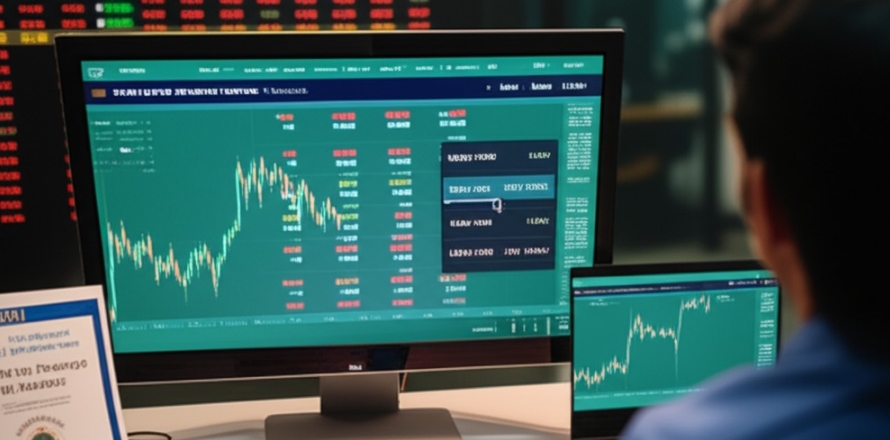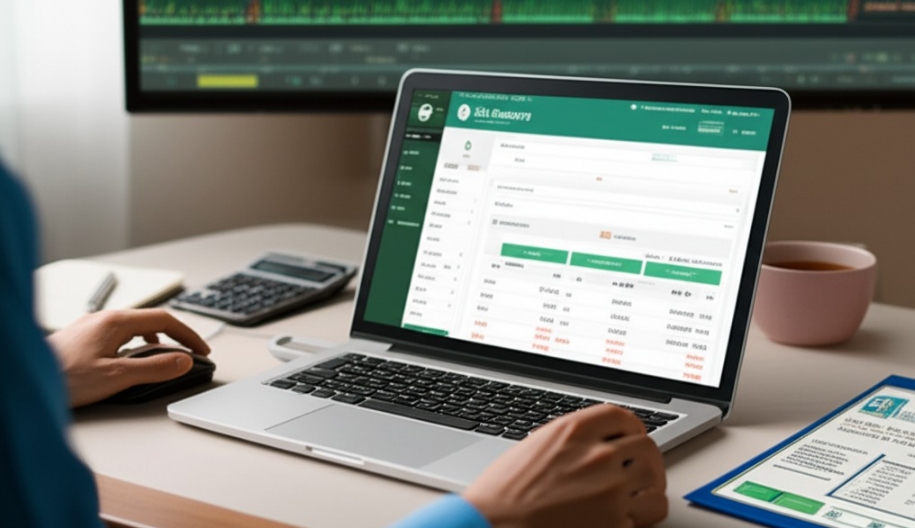Table of contents
Part 1 - What Is the Tax on Forex Trading in India?
Part 2 - Forex Trading Income Types in India
Part 3 - Tax Rates on Forex Profits in India
Part 4 - Is GST Applicable to Forex Trading in India?
Part 5 - Reporting Forex Income in Indian Tax Returns
Part 6 - Which Forex Platforms Help With Tax Filing in India?
Tax on Forex Trading in India is one of those things that most traders only think about when the taxman comes knocking. You're busy watching charts and chasing pips, not reading income tax laws. But here’s the catch—if you're trading forex, your profits are on the radar, and ignoring the tax angle could burn a hole bigger than any bad trade.
RBI and Income Tax rules aren't just red tape—they're real. As the CBDT puts it, “foreign income is taxable unless specifically exempted.” That means forex gains, especially from international platforms, can’t fly under the radar. Many new traders have learned that the hard way.
This article breaks down exactly what you need to know—from types of forex income, tax rates, and GST rules, to filing tips and legal tax-saving tricks. Let's make sense of it all, without the jargon, without the drama.
What Is the Tax on Forex Trading in India?
“Tax on forex trading?” repeated Mr. S. Sharma, a senior chartered accountant with over 20 years of tax advisory experience, shaking his head slightly. “Most retail traders in India are still unclear whether their gains fall under capital gains or business income. That confusion can cost them real money—and peace of mind.”
In India, forex trading profits are taxed under the Income Tax Act, 1961 and guided further by Income Tax Rules, 1962. The nature of the trading—occasional, speculative, or part of a structured business—defines the tax structure.
Two common income types:
Capital Gains: Typically applies if a trader holds currency as an investment.
Business Income: Applies when trading activity is frequent or professional.
Among these, income may further be classified into:
Speculative Business Income: Intraday or short-term trades, taxed at slab rates.
Non-Speculative Business Income: Delivery-based trades, also slab-based, but treated differently in audits.
"If it is speculative, the taxman wants to know your every move," said Nidhi Patel, a senior compliance officer at a leading forex brokerage. She advised maintaining detailed records, especially when using forex trading platforms that deal with currency derivatives.

Key terms:
Tax Rate: Varies by income type and taxpayer category.
TDS (Tax Deducted at Source): Rarely applied on trading profits but can arise via platforms during payouts.
GST (Goods and Services Tax): Applicable mostly on service fees or brokerage charges, not directly on trading profits.
Tip from the floor: Use platforms that issue consolidated annual tax reports. Traders claim these reports have made filing under ITR-3 or ITR-4 “at least tolerable, if not easy.”
Every trader who enters the forex space in India is advised to treat taxation not as an afterthought, but as part of the strategy itself. Without a proper understanding of where their income stands, they risk penalties—and worse, the attention of the tax department.
Forex Trading Income Types in India

Capital gains from forex trading
Forex Trading can result in capital gains when you're converting currencies as part of a long-term Investment strategy or asset holding. But it’s not as simple as "buy low, sell high" — the Income Tax Act classifies such profits as either short-term or long-term capital gains based on asset type and holding period.
| Holding Period | Tax Type | Approx. Rate (%) |
|---|---|---|
| < 36 months | Short-Term CGT | 15 – 30 |
| > 36 months | Long-Term CGT | 10 – 20 |
| Derivative FX | Business Income | Slab-based |
If you're trading forex through margin accounts or leveraged platforms, those profits typically won’t count as capital gains. Instead, they may fall under speculative or business income, depending on frequency and volume.
Business income classification rules
When forex trading is frequent and profit-driven, it’s considered Business Income by the tax authorities. Here's how that shakes out:
Revenue Recognition: You must account for gross income, not just net gains.
Operating Expenses: Internet, electricity, and software subscriptions? Yep, they’re deductible if linked to trading.
Tax Deductions: You may claim depreciation on laptops, mobile devices, or even office space used exclusively for trading.
Financial Reporting: As per Indian accounting standards, this income must be declared under ‘Income from Business or Profession’ in your ITR.
Pro Tip: A Chartered Accountant can help classify these correctly to avoid a tax notice.
Speculative income vs non-speculative
Alright, here’s the tea: Not all forex trading is created equal in the eyes of the Income Tax Department.
Speculative Income – Think short-term bets on currency pairs, intraday trades, or futures. This income is taxed like regular income, but losses can only be set off against speculative gains in future years. Risky game, folks.
Non-Speculative Income – Longer-hold trades, strategic investments, or trades via regulated platforms like NSE/BSE (in case of forex derivatives), fall here. You can claim deductions, and losses can be adjusted against other income heads.
“Classification defines your entire tax roadmap. One wrong move, and the penalty isn’t far behind,” says Ritika Chauhan, Chartered Accountant & Forex Consultant, Mumbai.
Make sure you’re not lumping all trading income under one bucket — because tax rules change with the tag.
Tax Rates on Forex Profits in India

Tax rate for capital gains
Capital gains from forex trading are typically taxed based on the holding period and type of income. Though forex trading is often treated as speculative and taxed under business income, some capital investments in foreign assets may fall under capital gains tax brackets.
Short-term capital gains (STCG) are usually taxed at 15% if securities transaction tax (STT) is applicable.
Long-term capital gains (LTCG) (holding period usually >36 months for certain assets) may enjoy exemptions or lower tax rates, often around 10% after indexation.
“It’s vital to track your adjusted basis and sale price to calculate taxable income accurately,” says Ramesh Iyer, a SEBI-registered tax advisor.
A simplified tax table for capital gains:
| Holding Period | Type | Tax Rate (%) |
|---|---|---|
| < 12 months | STCG | 15 |
| > 36 months | LTCG (indexed) | 10 |
Tax slab for business income
If your forex trading is frequent or full-time, it's considered business income. Here's the gist:
Taxable profit = Net income – Business expenses
Apply standard income tax slabs based on your filing status
For individuals, up to ₹2.5L is tax-free; slabs range from 5% to 30%
Oh, and don’t forget — if your annual business income crosses ₹1 crore, tax audit rules kick in. So keep those receipts!
Is GST Applicable to Forex Trading in India?

GST on currency exchange services
Forex isn’t just about profits—it’s also about how much you lose to hidden charges. Currency exchange services attract GST under a tiered rate system depending on the amount being converted. For instance:
| Transaction Amount (INR) | GST Rate | Effective GST Amount |
|---|---|---|
| Up to ₹1,00,000 | 1% | Min ₹250 |
| ₹1,00,001 – ₹10,00,000 | 0.5% | ₹250 + 0.5% on excess |
| Above ₹10,00,000 | 0.1% | Capped at ₹60,000 |
GST is levied on money changing margins and applies whether you're converting rupees to dollars or any other currency. No matter the platform—bank, app, or money changer—it bites the same way.
Service providers liable for GST
Registered Money Changers: Any entity converting currency regularly and earning beyond the threshold must register under GST.
Forex Platforms: Platforms facilitating forex trades and charging service fees must collect GST.
Banking Institutions: Even major banks involved in forex services fall under this net.
Failure to register or issue tax invoices leads to penalties under GST law. As per Ankit Jain, a GST consultant, “Even casual traders offering forex services on the side should stay aware of liability thresholds.”
GST threshold limits for individuals
If your aggregate turnover from forex services (or any business) exceeds ₹20 lakhs annually (₹10 lakhs in NE states), GST registration becomes mandatory. Below that, you're in the clear—but only for exempt categories. Freelancers or side-hustlers in forex, heads up: hitting that limit unknowingly is easier than you think. Stay alert, not sorry.
GST refund rules for traders
Exported forex services? They fall under zero-rated supplies, making you eligible for GST refunds.
You’ll need:
A valid refund application
Supporting documents
Proof of input tax credit
Submit everything through the GST portal within 2 years of the transaction date.
Don’t wait till the last minute—refunds can be a nightmare to chase if paperwork’s messy. And trust us, the GST authority doesn’t love latecomers.
Reporting Forex Income in Indian Tax Returns
ITR forms for forex traders
Choosing the right Income Tax Return (ITR) form depends on how your forex trading income is classified—business, capital gains, or speculative.
For capital gains: Use ITR-2
For business income (regular or speculative): Use ITR-3
If you opt for presumptive taxation under section 44AD: Use ITR-4
Pro tip: Online trading platforms often provide downloadable P&L statements to ease financial reporting.
| Income Type | Suitable ITR Form | Notes |
|---|---|---|
| Capital Gains | ITR-2 | Investment-based gains |
| Business Income | ITR-3 | Frequent/Speculative trades |
| Presumptive Income | ITR-4 | For small traders opting 44AD |
Income declaration guidelines
Declare all taxable income, including foreign exchange profits from currency trading.
Disclose deductions and exempt income separately—don't let those tax breaks go to waste!
Always align your financial statements with actual trading records to avoid mismatch issues.
It’s not about perfection—it’s about being accurate and upfront under Indian tax laws. Clarity equals safety.
Common mistakes in forex reporting
Some traders mess up without even knowing it. Let’s not be “that guy.”
Rounding off figures carelessly: it leads to compliance issues.
Using the wrong conversion rates for currency transactions.
Not keeping clean record-keeping of trades—“I'll do it later” is a trap!
Forgetting to report losses: Yup, even they need reporting (and may help reduce future tax liabilities).
“Accurate forex reporting is not optional. It’s the difference between clean returns and tax notices.” — Ramesh Iyer, Chartered Accountant
Which Forex Platforms Help With Tax Filing in India?

Platforms with tax report features
Tax season doesn't have to feel like pulling teeth. Some platforms now come with built-in tax report generators that track trades, profits, and even income tax obligations. This is a lifesaver for traders who don't want to dig through spreadsheets.
Zerodha, for instance, provides summary reports that align with ITR forms.
Platforms like Upstox offer software integrations with third-party tax tools.
A few international online marketplaces even automate GST and VAT tracking if you're also dabbling in e-commerce.
“Most traders miss deductions simply because their platform doesn’t support detailed tax tracking,” says Ravindra Deshmukh, a Mumbai-based fintech consultant.
Platforms registered under Indian law
<1> Compliance is key. Forex platforms operating under Indian law must follow strict legal requirements, including registration under the Indian Companies Act and the Information Technology Act.
<2> Platforms such as Kotak Securities or ICICI Direct meet these benchmarks and support full GST compliance and consumer protection norms.
<3> They are more likely to prioritize data privacy, a big win for those who don’t want their financials floating around unprotected.
| Platform Name | GST Support | Registered Under Indian Law |
|---|---|---|
| Zerodha | Yes | Yes |
| Upstox | Yes | Yes |
| Forex.com | No | No |
Legal Tax Saving Tips for Forex Traders in India
Set off forex trading losses
Forex trading can be a rollercoaster—some days you’re up, some days you’re watching red arrows. The good news? You can set off losses against capital gains or other business income to reduce your overall tax liability.
Losses from non-speculative forex trading (i.e., delivery-based) can be adjusted against other income.
Speculative losses (e.g., intraday trades) can only be set off against speculative gains.
You can carry forward losses for up to 8 assessment years for future set-off.
Pro tip: Keep a detailed log and use it when filing your income tax return to maximize tax benefits.
Claiming business-related expenses
Why pay more tax than needed? If you treat forex trading as a business, you can claim legit deductions:
• Internet charges, mobile bills, and even depreciation on your laptop count.
• Renting a co-working space? That’s office rent, and yes—it’s deductible.
• Keep records of brokerage fees, platform subscriptions, and even trading courses—they can all reduce your taxable income.
Just make sure they’re all actually used for trading.
Using presumptive taxation scheme
If your forex trading turnover is under ₹2 crore, you might be eligible under Section 44AD of the Income Tax Act.
Instead of showing actual profit/loss, you can declare 8% of turnover as profit, and pay tax on that.
It simplifies accounting and skips the need for a full audit.
This method is a lifesaver for small forex traders wanting less paperwork and lower compliance costs. But consult a CA first—this isn’t for everyone.
Keeping digital audit-ready records
In today’s tech-driven forex world, staying audit-ready isn’t just smart—it’s necessary.
Use online trading platforms that export:
Bank statements
Profit & loss reports
Trade confirmations
Make use of cloud storage or tax filing software to keep everything backed up and secure. A clean digital audit trail can save you from scrutiny and help you breeze through tax season.
“Digital documentation is no longer optional—tax authorities expect it,” says Priya Nair, CA and fintech consultant.
Conclusion
Forex trading feels like a jackpot till tax season knocks. Miss a form, and you’re dancing with penalties. Keep your records tight, know your slab, and don’t blindly copy what your broker says—know the law yourself.
As the Income Tax Department warns, “Ignorance of the law excuses no one.” So, trade smart, stay compliant, and let your profits feel like wins—not warnings.
Yes, forex trading is legal in India only through SEBI-registered brokers and exchanges like NSE or BSE for INR-based pairs. If you're trading through international brokers on non-INR pairs, it is considered illegal under FEMA (Foreign Exchange Management Act). Regardless, any profits made are taxable under Indian law.
Speculative income (e.g., intraday forex trading) is taxed as per your slab rate.
Non-speculative income (e.g., carry trades or delivery-based forex) may also be taxed at slab rates but is treated differently in bookkeeping.
GST may apply on brokerage and service fees.
You should report it under either:
Maintain books of accounts and ideally get them audited if turnover crosses ₹1 crore (or ₹10 crore with digital receipts).
Business income (if trading frequently or professionally)
Capital gains (for long-term, occasional trades—rare in forex)
Proper documentation is essential for claiming deductions.
Speculative losses can only be set off against speculative income and carried forward for 4 years.
Non-speculative losses can be adjusted against other income and carried forward for 8 years.
Retail traders may not need a GST number unless trading as a business.
Currency conversion services attract GST (typically charged by banks or brokers).
If you're a registered business doing forex trading, GST may apply on commissions and spreads.
Always maintain clear records, especially if audited under the Income Tax Act.
Contract notes from the broker
Profit and loss statement
Bank statements showing inflow/outflow
Audit report if applicable
No, NRIs are not allowed to engage in speculative forex trading in India. However, they can hedge currency exposure via RBI-approved mechanisms. Any income generated in India is subject to Indian income tax, based on the type of transaction.


